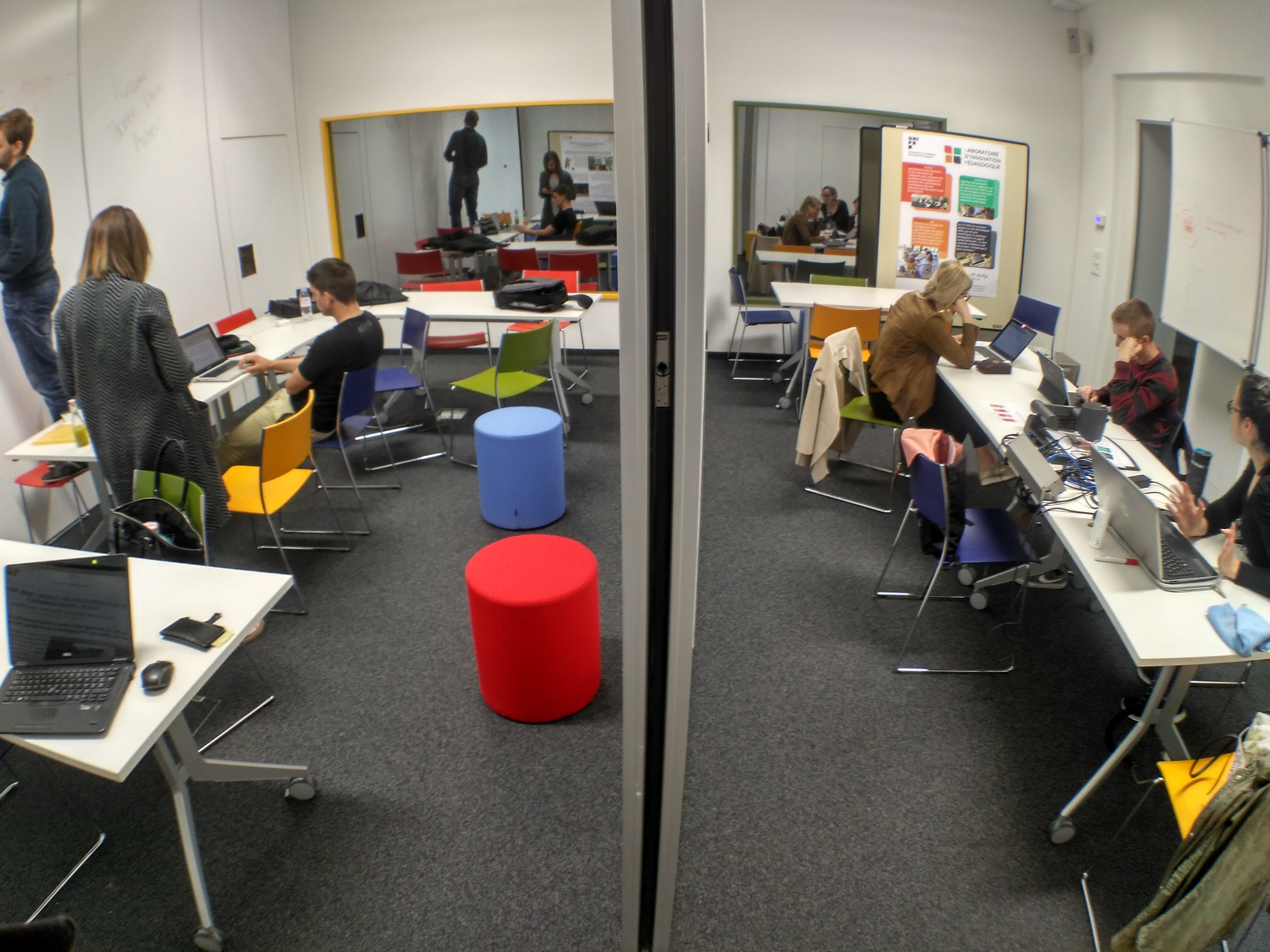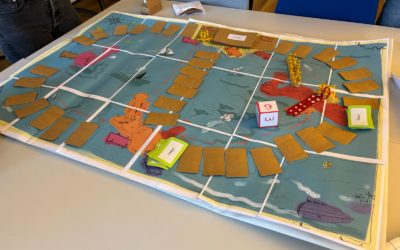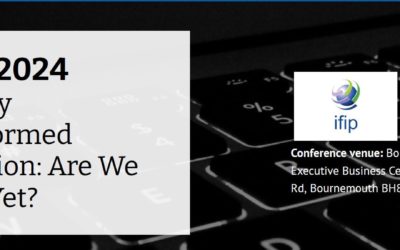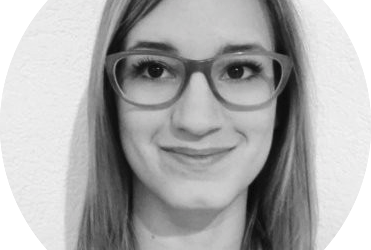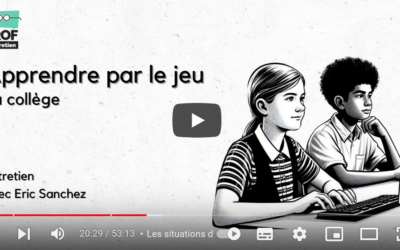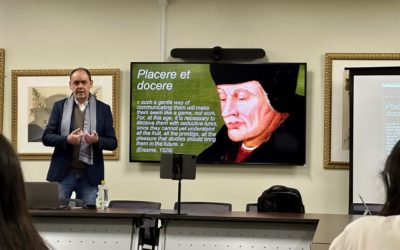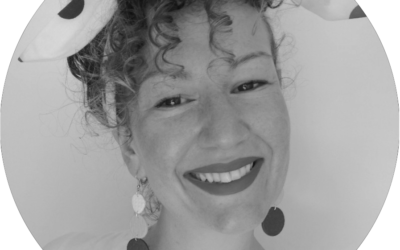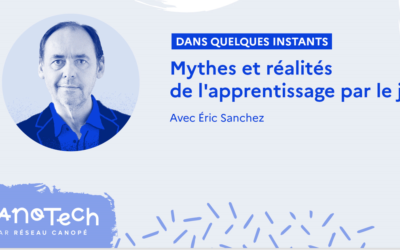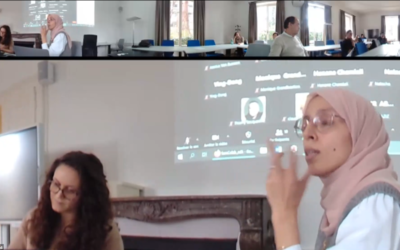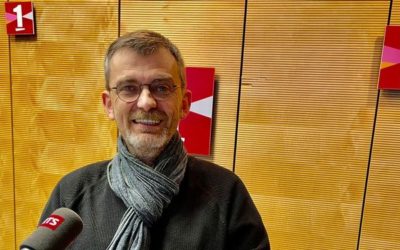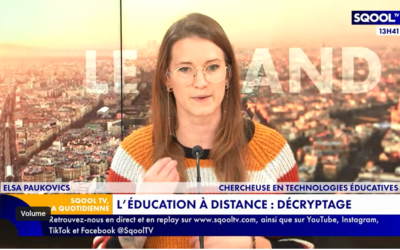co.LAB – A Digital Lab for the co-Design, co-Development and co-Evaluation of Digital Learning Games
Interest in Digital Learning Games (DLGs) has flourished at all levels of education. Digital Learning Games contribute to increasing students’ motivation and engagement, and are effective tools to support learner centered teaching practices. However, the design, development and uses of DLGs remain an issue due to the gap between teachers, game developers and researchers.
At the crossroads between educational and computer sciences the goal of the co.LAB project is to improve the design, development and uses of Digital Learning Games at all educational levels in Switzerland. This goal will be achieved by the development of what we call the co.LAB: a collaborative methodological framework between teachers, game developers and researchers in educational science, associated with a collaborative digital platform dedicated to co-design, co-development and co-evaluation of DLGs.
With the development, implementation and assessment of the co.LAB methodology and digital platform, we want to answer the following research questions (RQ).
RQ1: What methodology is needed to support collaborative DLG design and development?
RQ 2: What are the digital platform features necessary to support the collaborative DLG design and development process?
RQ 3: What are the effects of the methodology and digital platform on development cost and duration (efficiency)?
RQ 4: What are the effects of the methodology and digital platform on the quality of DLGs produced (relevance and effectiveness)?
RQ 5: What are the drivers for adoption of the methodology and digital platform by the educational, game developer, and research communities?
Following a design-based and mixed methodology, the co.LAB methodology and digital platform will be implemented and tested with the design, development and evaluation in real educational contexts of two showcase games dedicated to medical education (higher education) and computational thinking (secondary education). They will be used as a proof of concept. The experimentations will be carried out with classes both in a secondary school and at a university of applied sciences. The data collected will be based on an ethnographic approach on the one hand (questionnaires and focus groups carried out with stakeholders), and on the digital traces of users of the platform on the other hand.
By including a digital infrastructure for digital learning resources development and by providing, as a use test result, two digital learning games the project is fully in line with the PNR77 goals and more specifically with the module “Education, learning and digital change”. In addition, the co.LAB methodology, digital infrastructure and laboratory may serve both as an example of the introduction of digital in education and as a basis for future co-development of open digital educational resources in general.
Durée du projet
01/2020 – 12/2023
Financement
Fonds National Suisse

Requérants principaux
Dominique Jaccard HEIG-VD et Eric Sanchez, Université de Fribourg
Partenariat
Haute Ecole d’Ingénierie et de Gestion du Canton de Vaud
Membres du projet
Estelle Prior Unige
Mariem Jaouadi Unige
Membres associés
Nadine Mandran LIG/U. Grenoble
Matthieu Vermeulen IMT Nord Europe
Emmanuel Beffara U. Grenoble
Gaëlle Guigon IMT Nord Europe
Jérémie Humeau IMT Nord Europe
Anthony Fleury IMT Nord Europe
Contact
Eric Sanchez (eric.sanchez@unifr.ch)
Dernières actualités relatives à cette recherche
Game Jam pour le jeu Odyssée
Les 21 et 22 février, le LIP s'est installé dans les montagnes du Valais pour une game jam dans le cadre d'un partenariat avec l'Office Cantonal de l'Environnement de l'Etat de Genève. L'objectif de ce partenariat porte sur la conception d'un jeu destiné à la...
Retour sur la conférence OCCE 2024
Le LIP était à la conférence OCCE 2024 (Bournemouth, Royaume Uni). A cette occasion, Estelle Prior a présenté un article intitulé “co.LAB: a Web Platform Dedicated to the Design and Evaluation of Learning Games”. Cet article a été rédigé par Eric Sanchez (1), Estelle...
En route vers Montréal !
C'est avec un mélange de tristesse et de joie que nous avons célébré le départ d'Elsa Paukovics qui, après l'obtention d'un doctorat à l'Université de Genève s'envolera prochainement pourle campus de Montréal de l'Université de Sherbrooke où elle a obtenu pour un...
Apprendre par le jeu au collège.
Cette vidéo est un entretien avec Nathalie Dreyfus pour le collectif Etre Prof sur la question de l'apprentissage par le jeu.
Séminaire à l’Université d’Hiroshima
L'Université d'Hiroshima a organisé un séminaire dans le cadre du séjour d'Eric Sanchez en tant que professeur invité en janvier 2024. Ce séjour est financé dans le cadre d'un projet FNS Scientific Exchange et par l'Université d'Hiroshima. Le séminaire intitulé...
En avant vers 2024 !
Une nouvelle année débute pour le LIP avec de nombreux nombreux projets et changement en perspectives. Du point de vue de la composition de l'équipe, Hélène Parmentier, diplomée du Master of Teaching & Learning Technology (TECFA, Université de Genève) rejoint le...
Semaine de la ludopédagogie à Fort de France
Du 11 au 16 décembre, le LIP était invité par CANOPE et l'INSPE de la Martinique pour la semaine de la ludopédagogie. Le programme comprenait : - une conférence pour le réseau CANOPE sur la thématique de l'apprentissage par le jeu qui a été donnée en présence et à...
Design collaboratif de jeux destinés à un usage éducatif
La cinquième édtion du séminaire co.LAB "co-conception, lco-développement et co-évaluation des ressources numériques éducatives” était consacrée au design collaboratif de jeux destinés à un usage éducatif. Estelle Prior, Mariem Jaouadi et Dominique Jaccard ont...
AL2049 sur la RTS
Nicolas Godinot, conservateur à l'alimentarium, était l'invité de l'émission CQFD sur RTS. Il y parle du goût, de l'odorat et de AL2049, un jeu développé dans le cadre d'un partenariat entre l'Alimentarium, Digital Kingdom et le LIP, soutenu par le Fonds National de...
La Quotidienne sur SQOOLTV (29.11.2023)
La question des mythes et réalités sur l'apprentissage à distance était à l’honneur de la Matinale de SqoolTV animée par Emmanuel Davidenkoff. Elsa Paukovic est interviewée sur l'ouvrage qu'elle a coordonné avec Eric Sanchez et qui est publié aux éditions RETZ. Le...

